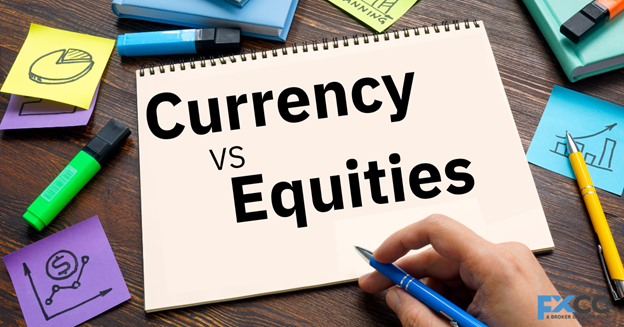The financial world is a vast and multifaceted landscape, offering a plethora of opportunities for investors and traders. Among the most prominent avenues are the foreign exchange market (forex) and the stock market, each holding its own distinct appeal and posing unique challenges. This article delves into the fascinating clash of these two trading worlds, exploring their key differences, potential overlaps, and considerations for individuals navigating their investment journeys.

The Battlefield: Currencies vs. Companies
At the heart of the forex market lies the trading of currencies. Currencies, like the US dollar, the Euro, or the Japanese Yen, represent the medium of exchange in international trade and finance. When you trade forex, you’re essentially speculating on the fluctuations in the value of one currency relative to another. This value is influenced by a complex interplay of factors, including economic growth, interest rates, political stability, and global events.
On the other hand, the stock market operates in the realm of companies and their ownership. When you invest in the stock market, you’re essentially purchasing shares of ownership in publicly traded companies. These shares represent a fractional claim on the company’s assets and future earnings. The value of your investment hinges on the performance of the company, its profitability, and the overall sentiment of the market.
The Thrill of the Fight: Volatility and Risk
One of the most striking differences between forex and equities lies in their volatility. The forex market, due to its constant flux and global influences, is generally considered more volatile than the stock market. This translates to potentially greater profit opportunities but also higher risks. Prices can move swiftly and significantly, demanding a strong understanding of market dynamics and the ability to react quickly.
Equities, while not immune to volatility, often exhibit a more gradual price movement compared to forex. This relative stability makes them appealing to investors seeking long-term growth through dividends and potential share price appreciation. However, individual companies can still experience significant price fluctuations, highlighting the importance of thorough research and portfolio diversification.
The Tools of the Trade: Skills and Strategies
Forex and stock trading require distinct skill sets and strategies to navigate their respective landscapes. Forex traders rely heavily on technical analysis, focusing on charts and past price movements to identify trading opportunities. They utilize various indicators and tools to forecast future price trends and make informed decisions.
Equity investors, on the other hand, often employ a blend of technical and fundamental analysis. Fundamental analysis involves assessing a company’s financial health, its competitive landscape, and its future growth prospects. This comprehensive approach helps investors make informed decisions based on a company’s intrinsic value and potential for long-term success.
Beyond the Battlefield: Finding the Right Match
Choosing between forex and equities ultimately depends on your individual risk tolerance, investment goals, and available capital. If you’re comfortable with high volatility and have the appetite for potentially large profits, then forex trading might be a viable option. However, it requires extensive knowledge, quick decision-making, and a robust risk management strategy.
For those seeking long-term wealth creation with a moderate tolerance for risk, equities can be a compelling option. However, thorough research, patience, and a diversified portfolio are essential to navigate the stock market effectively.
The Intertwined Dance: Overlaps and Interdependencies
Despite their differences, forex and equities aren’t entirely isolated worlds. Global economic events can impact both markets simultaneously. For instance, central bank interest rate adjustments can influence both currency exchange rates and stock market valuations. Additionally, strong or weak economic performances in a nation can affect both the value of its currency and the performance of its publicly traded companies.

Understanding these interdependencies can be crucial for informed decision-making in both markets. Investors and traders should remain aware of broader economic trends and their potential impact on their chosen investment avenues.
The Final Round: A World of Choices
The clash between forex and equities continues to captivate investors worldwide. Each market offers unique opportunities and challenges, demanding a thorough understanding and well-defined strategy from its participants. Whether you choose to venture into the dynamic world of forex or navigate the established landscape of equities, remember to approach your investments with knowledge, caution, and a well-defined plan.


